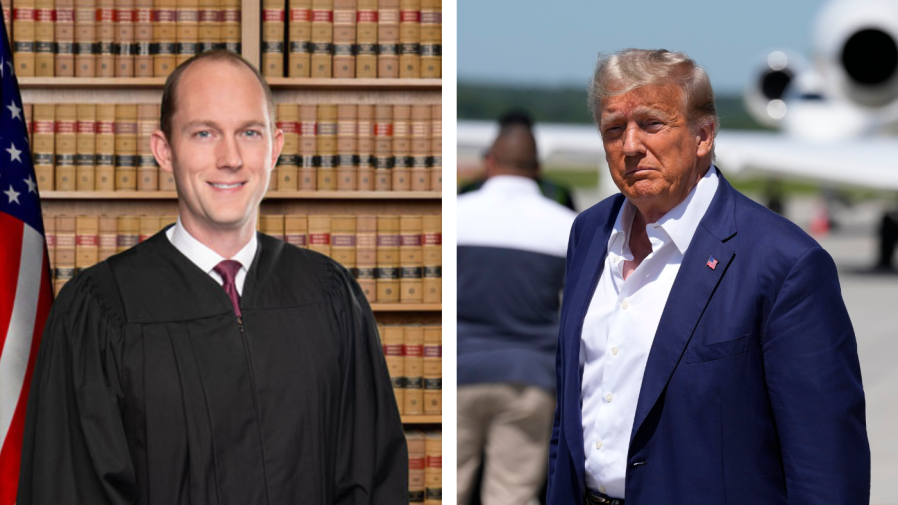A judge in Georgia has agreed to sever the remaining cases of former U.S. President Donald Trump and 16 other defendants in the case accusing them of violating state racketeering laws in their efforts to overturn the results of the 2020 election.
The decision by Fulton County Superior Court judge Scott McAfee allows the case to move forward with two defendants going to trial on October 23rd–former Trump campaign attorney Sidney Powell and attorney Kenneth Chesebro. While the remaining defendants will be tried at a later date, any defendant who does not waive their right to a speedy trial before October 23rd will be added to the trial.
The ruling follows the Trump campaign’s request to delay proceedings in order for all defendants to properly prepare their defense. Judge McAfee cited issues regarding due process and the voluminous discovery in the case as reasons to grant the motion to sever the remaining cases.
McAfee said that “the precarious ability of the Court to safeguard each defendant’s due process rights and preparation ensure adequate pretrial preparation on the current accelerated track weights heavily, if not decisively, in favor of severance.” In addition, he indicated that any additional divisions may be required later
Though Trump has already waived his right to a speedy trial, his attorney, Chief of Staff Mark Meadows, has appealed a district court ruling that denied his bid to remove the case to federal court. The outcome of that appeal may ultimately determine Trump’s role in the ongoing trial.
The case has been watched closely by both political observers and legal experts, as it is seen as a potential indicator of criminal liability for the actions of President Trump and his allies. McAfee’s ruling now sets the stage for a closely-watched trial beginning in late October.
The attorneys for Trump and the other defendants will no doubt be closely examining the prosecution’s presentation of evidence and strategy. Some may opt to join Powell and Chesebro in pushing forward with the trial on October 23rd, while others may waive their speedy trial rights and face charges at a later date.
Regardless of when the defendants face trial, the charges brought against former President Trump and his allies have put a spotlight on their actions leading up to the 2020 election, and sparked a heated debate over the legal implications of such charges. The process to determine the truth, however, is now well underway.

